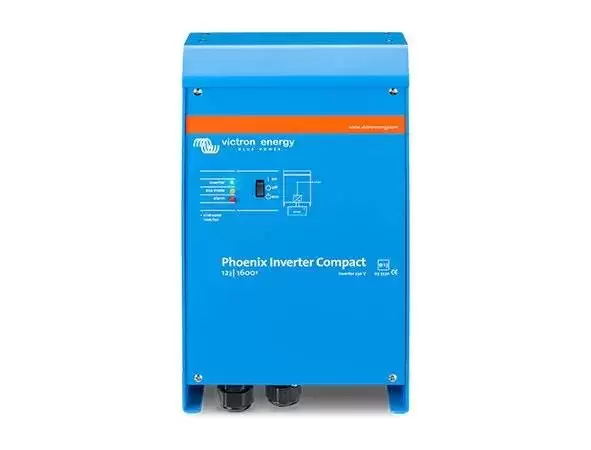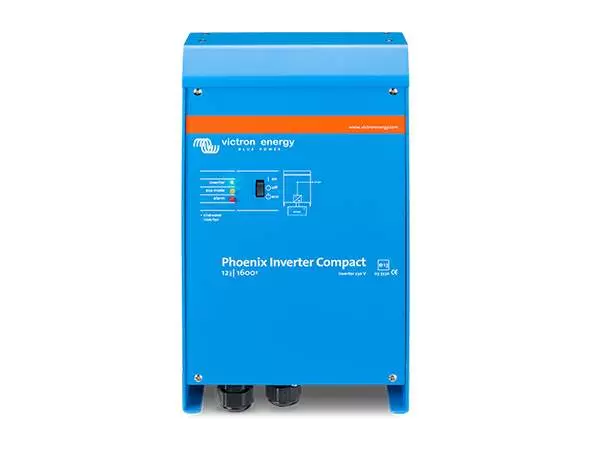Are you tired of being left in the dark during power outages? With the frequent blackouts and load shedding experienced in many areas, having a reliable backup power source is essential for any household. That’s where inverters come in. These devices convert direct (DC) electricity from batteries into alternating (AC) that can power your home appliances. But with so many options on the market, choosing the perfect inverter for your household can be overwhelming. In that blog post, they will guide you through selecting the inverter for home, ensuring that you beat the blackouts and stay powered up at all times.
Understanding The Role And Importance Of A Home Inverter
A home inverter plays a vital role when it comes to keeping your household running smoothly during power outages. It is a reliable backup power source, ensuring that your essential appliances and devices stay up and running, even when the grid is down.
But why is a home inverter so important? Well, think about it. Power outages can occur unexpectedly and last for hours or even days. During these times, a backup power source is crucial for maintaining comfort and safety.
A home inverter can also help you save money in the long run. Investing in an efficient inverter system can reduce your reliance on the grid, ultimately lowering your electricity bills. You can also take advantage of any excess solar power generated by your rooftop solar panels and store it in your inverter’s batteries for later use.
Features To Consider When Choosing The Best Inverter
When choosing the best inverter for your home, several key features must be considered. These features will ensure that you select an inverter that meets your power needs and provides reliable performance.
Firstly, it’s important to consider the inverter’s power output. That is measured in watts and determines how much power the inverter can provide to your appliances. Choose an inverter with a power output that matches or exceeds the combined wattage of the appliances you plan to power during an outage.
Next, look for an inverter with multiple outlets. That will allow you to connect and power multiple appliances simultaneously. It’s also helpful to have AC and USB outlets to charge your devices directly from the inverter.
Another important feature to consider is the inverter’s battery capacity. That determines how long the inverter can provide power during an outage.
How To Determine The Right Capacity For Your Household?
When choosing the right inverter for your household, sizing is a critical factor to consider. You want an inverter that can provide enough power to meet your household’s needs during a blackout. Still, you also don’t want to overspend on a larger capacity inverter you don’t need. So how do you determine the right capacity for your household?
The first step is to assess your power requirements. List all the appliances and devices you want to power during an outage. Determine the wattage of each item and add up the total. That will give you an estimate of the power capacity you will need from your inverter.
Next, consider the duration of outages in your area. If blackouts are frequent and last for extended periods, you may want to choose an inverter with a larger battery capacity. On the other hand, if outages are infrequent or short-lived, a smaller capacity inverter may be sufficient.
 Tips For Maintaining Your Home Inverter For Optimum Performance
Tips For Maintaining Your Home Inverter For Optimum Performance
Maintaining your home inverter is essential to ensure its optimum performance and longevity. Here are some helpful tips to keep your inverter running smoothly and effectively:
Regular cleaning
Dust and debris can accumulate on the inverter, affecting efficiency. Make sure to clean the exterior of the inverter regularly using a soft cloth or brush. Avoid using harsh chemicals or abrasive materials that may damage the surface.
Battery maintenance
Proper maintenance is crucial if your inverter has a battery. Check the battery’s water level regularly and top up if necessary, using distilled water. Clean the battery terminals to prevent corrosion and ensure good conductivity. Also, monitor the battery’s charge level and recharge it if it falls below the recommended level.
Ventilation
Inverters generate heat during operation, so it’s important to ensure proper ventilation to prevent overheating. Keep the inverter in a well-ventilated area with sufficient airflow. Avoid placing it near heat sources or in direct sunlight.
Regular inspections
Perform routine inspections of the inverter to check for any signs of damage, loose connections, or worn-out components. If you notice any issues, contact a professional for repairs or replacements.
Firmware updates
Inverters may have firmware updates available to enhance performance and fix bugs. Stay updated with the manufacturer’s recommendations and install any necessary updates to ensure optimal functionality.
Making The Investment: Costs, Installation And Maintenance Expenses
When investing in a home inverter, a few costs must be considered. First, you’ll need to determine your budget for the inverter itself. Inverters come in various prices, depending on their features and capacity. It’s important to strike a balance between quality and affordability, so you get the best value for your money.
Next, you’ll need to factor in the installation costs. While some people may be comfortable installing an inverter themselves, hiring a professional for proper installation is often recommended. That ensures the inverter is installed correctly and safely, maximizing its performance and lifespan.
Maintenance expenses should also be considered. While inverters are generally low maintenance, keeping them clean and regularly checking the battery and other components is important. You may need to replace the battery after a certain number of years, which will incur an additional cost.
Powering Your Home: Best Inverter For Home
When powering your home during blackouts, choosing the best inverter is crucial. With so many options available, finding the perfect one for your household can be overwhelming. But don’t worry, we’re here to help you make the right decision.
The best inverter for home will depend on your specific power needs. Consider factors such as the power output, battery capacity, efficiency rating, and safety features. These features ensure a reliable backup power source for all your essential appliances and devices.
It’s also important to consider the size of the inverter. Assess your power requirements and the duration of outages in your area. That will help you determine the right capacity for your household. It’s always better to have a slightly larger capacity than you need to avoid being left without power during an outage.
Getting The Most Out Of Your Inverter: Efficiency And Output Optimization
Maximizing efficiency and output is essential to getting the most out of your inverter. By optimizing these factors, you can ensure that your inverter provides reliable and uninterrupted power during blackouts.
One key aspect of optimizing your inverter is ensuring it is operating at its highest efficiency. That means choosing an inverter with a high efficiency rating, as that blog post mentions. The higher the efficiency rating, the more energy the inverter can convert from the batteries into usable AC power.
It’s important to manage your power usage effectively to further optimize your inverter’s output. Prioritize your essential appliances and devices during a blackout to avoid overloading the inverter. Unplug any unnecessary devices and use power-saving features on your appliances when possible.
Inverter’s Performance
Regularly monitoring your inverter’s performance and conducting routine maintenance checks can also help optimize its efficiency and output. Monitor error codes or alerts, and address them promptly to avoid any issues. Cleaning the inverter regularly and inspecting its components can help identify potential problems early on and prevent them from impacting its performance.
By following these tips, you can maximize the efficiency and output of your inverter, ensuring that you get the most out of that essential backup power source. Stay powered up and beat the blackouts with an optimized inverter that delivers reliable performance when you need it the most.
Inverter Safety: Precautions And Best Practices For Home Use
When it comes to using a home inverter, safety should always be a top priority. While these devices are designed to provide backup power during outages, they can pose risks if not used properly. Here are some precautions and best practices to remember when using a home inverter.
First and foremost, it’s important to read and follow the manufacturer’s instructions for your specific inverter model. That will provide important information about its safe operation and any specific precautions.
Always ensure that your inverter is properly grounded. That will help protect against electrical shocks and ensure the safe flow of electricity. Keeping the inverter in a dry and well-ventilated area is also important, away from moisture or flammable materials.
Power Capacity
Never overload your inverter by connecting appliances that exceed its power capacity. That can lead to overheating and damage to the inverter, as well as potentially causing a fire hazard. Using a larger capacity inverter or prioritizing essential appliances during a blackout is always better.
Regularly inspect your inverter for any signs of damage or wear. If you notice any frayed wires, loose connections, or other issues, have them repaired by a professional before using the inverter.
In an emergency, such as a fire or electrical shock, ensure a clear understanding of how to safely shut off your inverter and disconnect it from the power source. By following these precautions and best practices, you can ensure your home inverter’s safe and effective use.
FAQs
Q: Can I Install The Inverter Or Hire A Professional?
A: While some people may have the technical knowledge to install an inverter themselves, hiring a professional is generally recommended. That ensures the inverter is installed correctly and safely, maximizing its performance and lifespan.
Q: How Long Will The Inverter’s Batteries Last During A Power Outage?
A: The battery life of an inverter can vary depending on factors such as the battery capacity and the power consumption of your appliances. On average, most inverters can provide power for several hours to a few days. Choosing an inverter with a battery capacity that aligns with your power needs during outages is important.
Q: Can I Use My Inverter To Power All My Household Appliances?
A: The power output of your inverter will determine which appliances it can power. Choosing an inverter with a power output that matches or exceeds the combined wattage of the appliances you plan to power is important.
Q: Do I Need To Turn Off My Inverter When The Power Comes Back On?
A: No, you don’t need to manually turn off the inverter when the power is restored. Most inverters have a built-in automatic transfer switch that seamlessly switches the power source from the battery to the grid. That ensures that your appliances continue to run on grid power without interruption.
Q: Can I Use My Inverter During The Day When There Is No Power Outage?
A: Absolutely! Inverters can be used during the day to power your appliances directly from the batteries. That allows you to reduce your reliance on the grid and take advantage of any excess solar power generated by your rooftop solar panels.
Conclusion
In a world where power outages and blackouts have become common, having a reliable backup power source is crucial for any household. And that’s where inverters come in. Inverters provide a lifeline during grid failure by converting DC electricity from batteries into AC power. In that blog post, they have explored the importance of home inverters and how to choose the best one for your household. They discussed the key features to consider, such as power output, battery capacity, efficiency rating, and safety features. They also delved into inverter sizing, maintenance tips, and costs associated with purchasing, installing, and maintaining an inverter.



